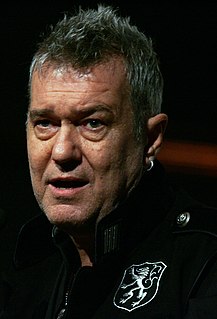A Quote by Anna Quindlen
There's something undeniable about the posture of a person trying not to acknowledge your existance
Quote Topics
Related Quotes
I don't like that new age posture where you kind of tilt your head. I don't like that posture right now. I want something a little more confident and more sure of the values that we're defending, which are the old ones, love and empathy and patience and tolerance and civility. Not to get into politics or anything.
You're just trying to be yourself, and for me, playing soccer is being myself. One day, you're one person on a team. The next thing people are asking your opinion about things you're not an expert on. Because they recognize you, they think you must know something about something - which isn't necessarily the case.
Our search for such [moral] principles can start with . . . the unconditional imperative to acknowledge every person as a person. If we ask for the contents given by this absolute, we find, first, something negative-the command not to treat a person as a thing. This seems little, but it is much. It is the core of the principle of justice.
One of the things that has changed my life - and this comes from someone who was highly self-critical and a type-A personality - is meditating. The simple act of making my brain shut off for 20 minutes in the morning and 20 minutes at night may not seem like much, but what ends up happening, besides creating space in your day, is your awake posture begins to replicate your meditative posture.

































